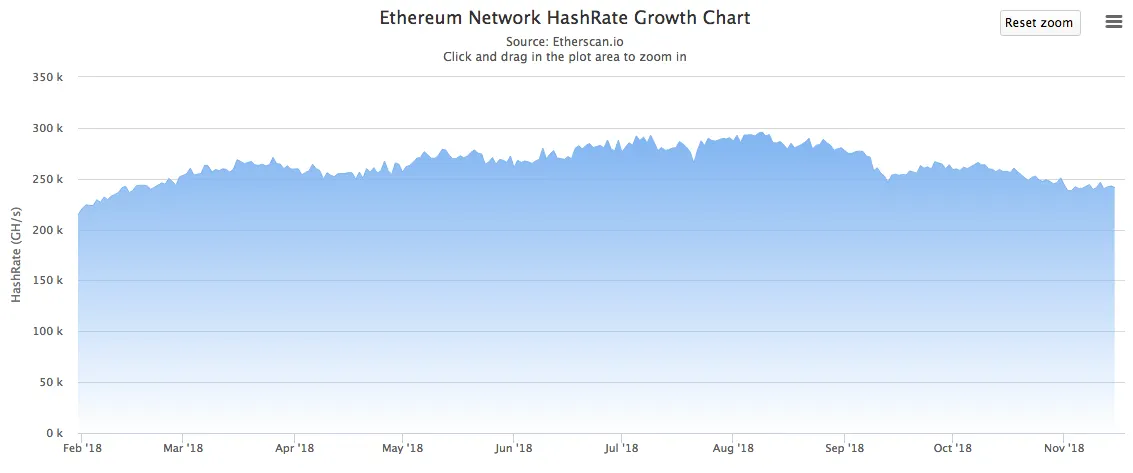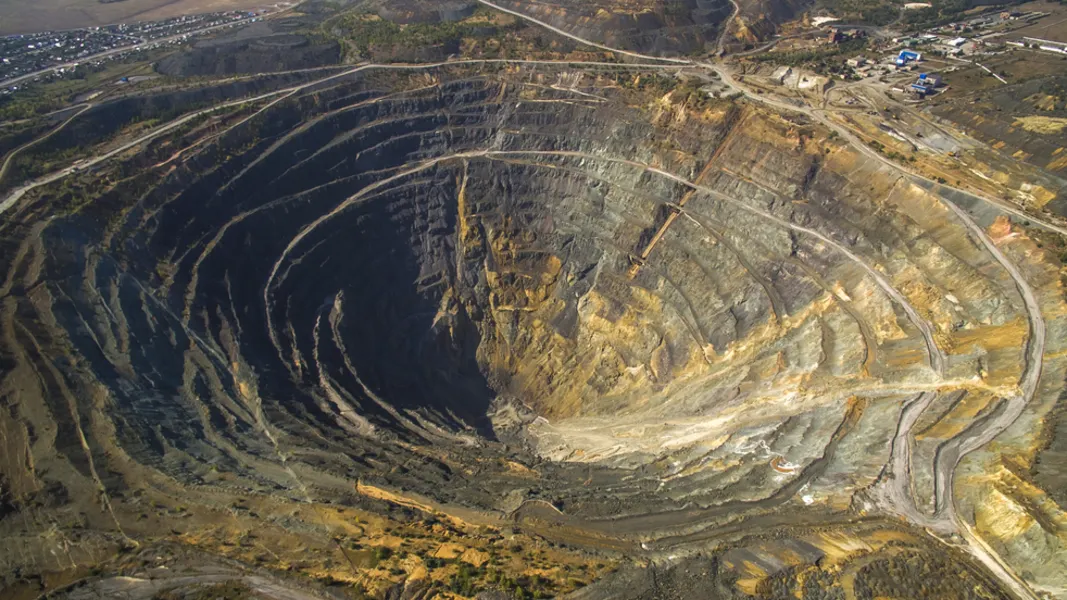A recent CNBC report says that the 15% drop in the value of Ethereum has now made mining on the network no longer profitable. Are we going to see an exodus of miners away from the number three ranked cryptocurrency? Not exactly.
Ethereum miners are still running strong. While the hashrate–computing power of the miners–has been declining since August, it’s only fallen back to February 2018 levels. The recent price crash hasn’t had any significant impact on the hashrate for the network, suggesting miners are staying put, which is a bit of a mystery if they aren’t making any money.
When it comes to Ethereum mining, the most important factor in deciding where to do it is the price of electricity. This is why mining farms tend to be concentrated in areas where power is cheap, or temperatures stay close to zero--the cold weather means machines can be kept cool without air conditioning--or both. According to Petr Statsenko, journalist at base58, the profitable mark in terms of the price of electricity is about $0.15 KwH. So, anybody who has prices lower than this is still mining at a profit.
Software engineer and Ethereum miner Greg Meszaros, founder of Omegapool, tells Decrypt that while it’s expensive in some areas, “It’s still profitable in Venezuela, Ukraine, China, and Canada. The price of electricity in Ukraine is $0.03 per KwH compared to the U.K. where it’s about $0.18 per KwH.” This means many miners are still sitting comfortably.

However, it may be over for the home miner in the West. While in 2017, a home miner in the U.S. could make $2-3 per day from a single graphics card, today it is no longer the case. Mark Laurence, CTO at Blackcore Technologies, a server manufacturer for the finance and medical industries, who runs an Antminer E3--a mining machine built by Bitmain to mine Ethereum--says once electricity costs are paid, he isn’t making any money. But he’s not paying to heat his home, either.
Laurence owns 30 Nvidia 1070 GPUs which make around $0.20 a day each mining on the network. Running the GPUs provides enough heat to keep his house warm, effectively paying for themselves. In short, without finding a low-cost, or even free source of electricity–like this entrepreneuring headmaster–it looks like only industrial miners in the right locations will be able to make ends meet. Unless you live in a Evangelical Church in Siberia, of course.
CNBC has a long history of sounding the death knell for crypto. It’s pronounced Bitcoin dead not once, not twice, but thrice, and is now reading Ethereum its last rites. O ye of little faith. Miners are a hardy bunch. They’re willing to go to the ends of the earth to make a buck out of mining, suggesting it’s going to take more than a seismic shift in market values to keep them down.
Read Next: The Bitcoin Cash Fork War: Inside the Bunker

